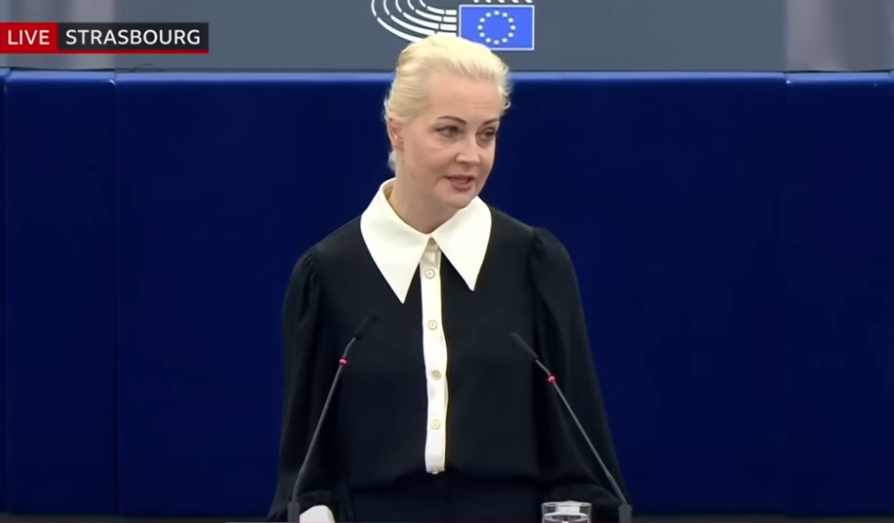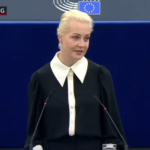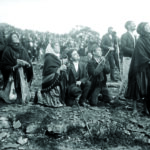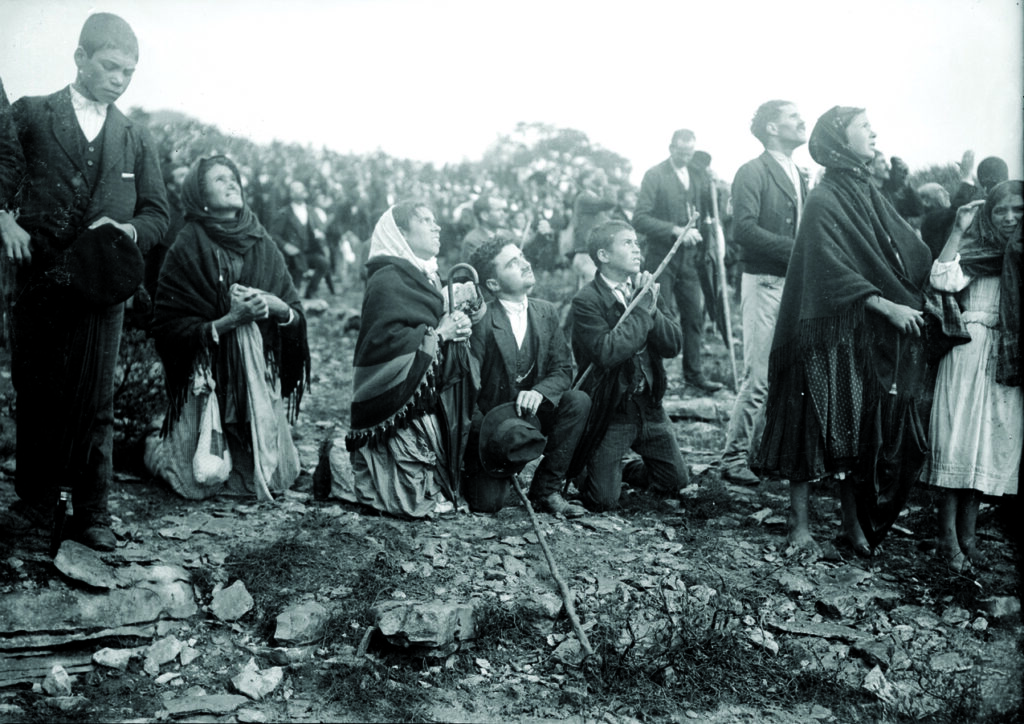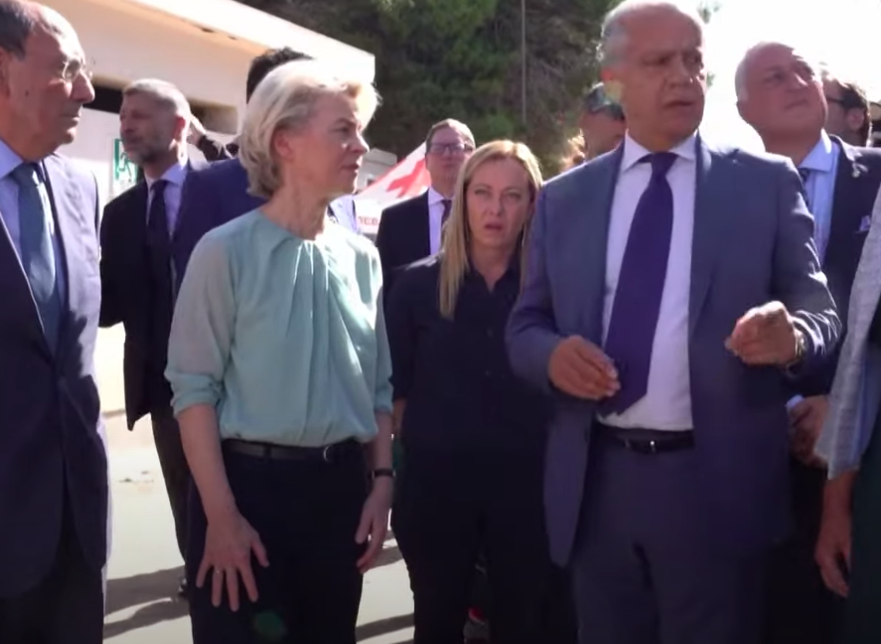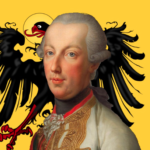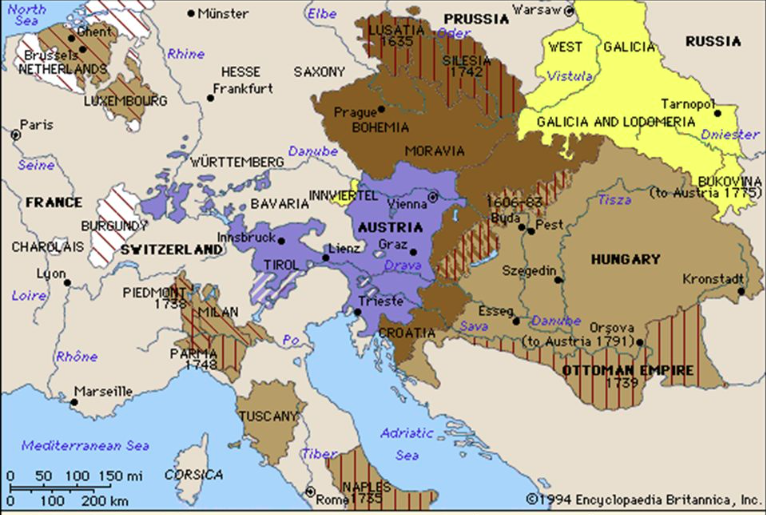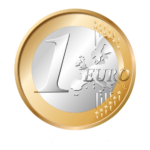A few days ago, Yulia Navalnaya, Alexei Navalny’s widow, gave a speech in the EU parliament. This is what she had to say:
Allegedly voters of the EU deputies ask them how they could help Yulia in her fight and the deputies relay those questions to her. Before answering the question how, Yulia said that Putin (she repeated this name more times than one can stomach, just as Victoria Nuland did in one of her latest speeches), who had begun the murderous war, had gone nowhere, and that everything had already been used – weapons, money, sanctions – with nothing working. Stop. It is hard to believe that Yulia Navalnaya wrote the speech on her own or, granting she wrote it on her own, that no one had a look at it before her address. Did they not notice the contradiction between “Putin had gone nowhere” and “weapons, money, sanctions (i.e. the support for Ukraine) did not work”? Obviously, she was nervous, but still she read the short text from paper. Never mind, let us scan the rest of her speech.
She said that that the worst had happened (again, so Putin has achieved something after all) in that people were getting used to the war (read: they became indifferent) and then, she said sort of disconnectedly, Putin killed her husband. Worse, she said. On Putin’s orders her husband had been “tortured for three years and had been starved in a tiny stone cell, cut off from the outside world and denied visits, phone calls and then even letters. And then they killed him,” she repeated, as if not sure that the EU deputies had understood her the first time she said Putin had killed her husband. Then, said Yulia Navalnaya “they abused his body(?) and abused his mother(?),” which only goes to show that “Putin is capable of anything and that you cannot negotiate with him,” at which point something weird happened (have a listen from this moment for a few seconds). Barely had the audience begun to clap as she said “thank you” – just as if she had it written in her speech text: applauds here, make a stop.
Yulia Navalnaya continued that many people believed that Putin could not be defeated at all, and still they kept asking her how they could help. Before answering that question Yulia Navalnaya saw it fit to describe the character of her husband in more detail. She said he was an inventor(?) with new ideas for everything(?), especially in politics. Then she reminded the deputies that soon they would be campaigning to get reelected. Imagine, she said, that all this political campaigning was impossible because no TV station would allow an interview with you, no money in the world would make commercials possible while the voters and the candidates would be arrested once they turned up at a rally. If you could picture that to yourselves, said Yulia Navalnaya, that was precisely Putin’s Russia. Applause.
An aside here. It was also a few days ago that we could witness how British Prime Minister Rishi Sunak publicly went ballistic and freaked out because in ONE British constituency ONE man (George Galloway) outside the establishment was elected by the local people. Rishi Sunak addressing journalists in front of Downing Street 10 repeatedly described the event as an ugly victory of the far right extremists even though George Galloway’s political proclivities are leftist. Most likely Yulia Navalnaya does not know about it at all. Yet, she should know, living for so many years in the West, that people get deplatformed and demonetized in the social media whenever they voice opinions diverging from the political correctness of the West. She should also be familiar with the fate of Julian Assange, Edward Snowden or most recently Gonzalo Lira. Gonzalo Lira was tortured, isolated and killed by Ukrainians because he dared to express opinions diverging from those propagated by the Kiev regime. These three men are not Putin’s victims so they simply don’t matter.
Despite all the hindrances, Yulia Navalnaya continued, Alexei Navalny managed to become the most famous politician in Russia (really?), inspiring millions(you don’t say!) of people with his ideas. How did he do it, she asked herself. Well, if you are not allowed to appear on TV, let’s post YouTube videos for all to watch (surely, Alexei Navalny would not have been deplatformed like thousands of others!); even in Putin’s gulag, she said, Alexei was able to “pass ideas of projects that would make the Kremlin panic” (Wow!). But hang on for a moment! Didn’t she say a minute or so earlier that her husband was “cut off from the outside world and denied visits, phone calls and then even letters”? The audiences would not have noticed that, for sure. So the answer to the question of how to defeat Putin, she continued, is simple: you have to become an innovator, you have to stop being boring(!). Ovation. You cannot harm Putin, she said, with another set of resolutions or sanctions (obviously). “You cannot defeat him by thinking he is a man of principle who has morals and truths.” That’s dehumanization of the opponent or adversary in its purest form, an attitude which the Western ideologues are otherwise so vociferously against. This time the principle did not apply.
“You are not dealing with a politician,” Yulia Navalnaya continued, “but with a bloody monster. Putin is a leader of an organized criminal gang.” Here she was interrupted by an applause after which she went on saying, “it’s good to repeat it again: Putin is a leader of an organized criminal gang.” To which she received more applause. This criminal group includes “poisoners and assassins”. The inference? The West needs to fight organized crime or mafia headed by Putin (Putin’s mafia in Europe itself? Gee…). How? By fighting the mafia’s associates who happen to be operating in the West(!), who help Putin and his friends to hide money (Where? Why can’t he hide his money in Russia?). In this fight the West has, according to Yulia Navalnaya, “tens of millions(?) of Russians on the West’s side, Russians who are against war, against Putin, against the evil he brings.” The West “must not persecute them [Russians], but on the contrary” the West “must work with them [Russians]”. Putin must answer for all that he had done to Russia and Alexei (in the Hague, I guess). “The evil will fall, and the beautiful future will come.” These were the final words of Yulia Navalnaya’s speech delivered in the EU Parliament.
Compare this address with the latest rant by Victoria Nuland. Putin, Putin, Putin said again and again with vilification, insults, vitriolic hate, and you name it. Dehumanization, bad-mouthing and immolation. Poor woman. She most likely believes in everything she said. And poor as she is, she was used in this séance of hatred by those who are beginning to taste a crushing defeat at the hands of the “mafia boss”. A pathetically piteous sight.
